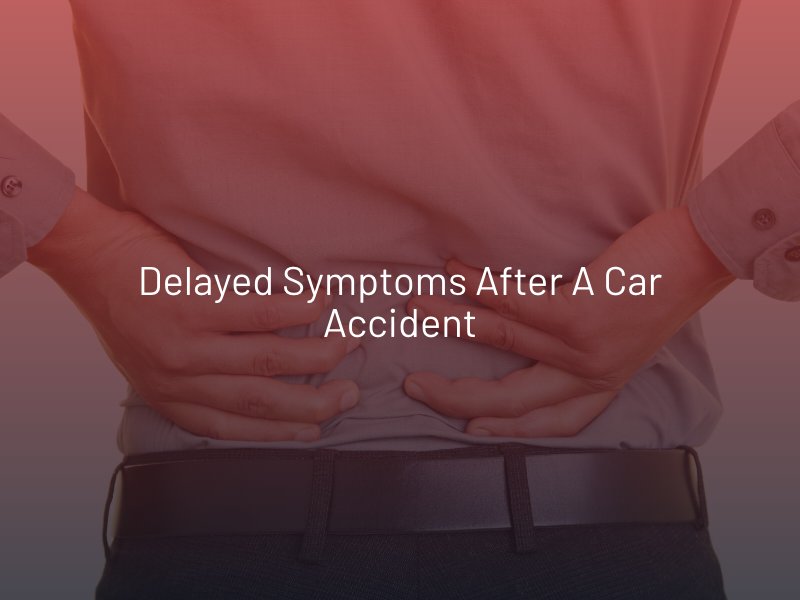Delayed Symptoms After a Car Accident
Car accidents can be traumatic events, leaving victims shaken and often in a state of shock. While some injuries are immediately apparent, others may not surface until hours or even days later. These delayed symptoms can potentially be dangerous if left unaddressed. Here are the common delayed symptoms that warrant immediate medical attention.

Headaches
The jarring effect of the collision on the brain can lead to headaches of varying intensities. Victims may experience tension headaches, migraines, or even cluster headaches. It is crucial not to dismiss persistent headaches, as they could indicate underlying issues, such as a traumatic brain injury (TBI), whiplash, a pinched nerve, etc.
Changes in Behavior
Changes in behavior can emerge as a surprising and often overlooked delayed symptom following a car accident. However, it can signal a potential underlying TBI. Victims may experience mood swings, irritability, shifts in personality, difficulties with concentration, memory, or decision-making abilities. These behavioral shifts can be subtle initially.
Seeking immediate medical attention is crucial to accurately diagnose and address any potential trauma to the brain, ensuring the best chance of recovery and minimizing long-term consequences.
Neck or Shoulder Pain and Stiffness
Neck or shoulder pain and stiffness can stem from the abrupt jolting motion experienced during a collision, leading to strain on the muscles and ligaments in the neck and shoulder area. Victims may not immediately notice these symptoms, but they could signify whiplash, a herniated disc, or other damage to the spine. They may gradually intensify over the hours or days that follow. The pain might manifest as a dull ache or sharp, shooting sensations, while stiffness may limit the range of motion, making simple tasks like turning the head or lifting the arm challenging.
Back Pain
The force of impact can lead to strain or injury in the back’s muscles, ligaments, or vertebrae. Hours or even days after the accident, individuals may begin to experience persistent discomfort, ranging from dull aches to sharp, localized pain. It is crucial not to overlook back pain as a minor inconvenience, as it could signal underlying spinal or soft tissue injuries.
Numbness
Numbness may be felt in extremities like the hands, arms, or legs from nerve compression or damage sustained during the collision. It may not manifest immediately, leading individuals to overlook its significance. However, numbness should not be ignored, as it could signal underlying nerve issues or circulation problems.
Abdominal Pain or Swelling
Abdominal pain or swelling may indicate underlying internal injuries, such as organ damage or soft tissue trauma. Any unusual sensations in the abdominal area, swelling, or bruising warrant a visit to the doctor for assessment.
Post-Traumatic Stress Disorder (PTSD)
The psychological impact of a traumatic event can manifest in various ways, including alterations in demeanor and actions. Individuals may become more irritable, anxious, or withdrawn, struggling to cope with the aftermath of the collision. Additionally, they might exhibit signs of avoidance, such as avoiding driving or even discussing the incident. These behavioral shifts may indicate PTSD that requires medical and psychological support.
If you or a loved one has experienced delayed car crash symptoms, contact a trusted Las Vegas car accident attorney for help with your claim.